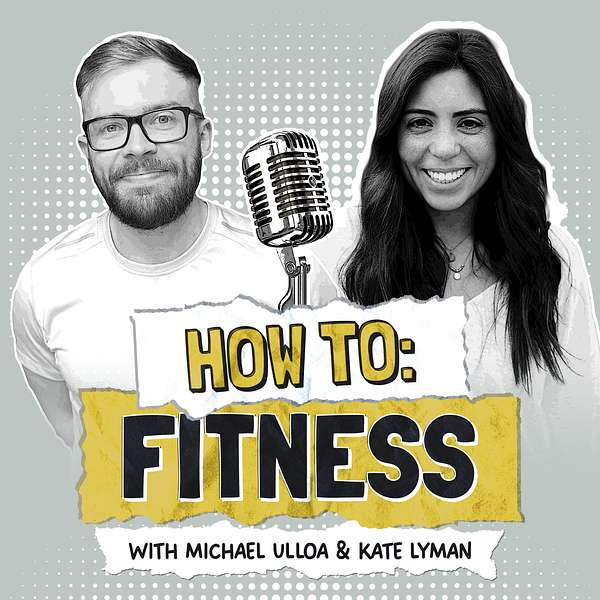
How to: Fitness
What's the history behind MLMs? How is technology changing our fitness? How have beauty standards evolved over the past few decades?
Veterans of the fitness industry, Michael Ulloa and Kate Lyman, bring you a brand new podcast that's all about about busting common fitness and nutrition myths, helping you separate fact from fiction, and providing you with practical, evidence-based information in a wellness space overrun with misinformation.
How to: Fitness
25 | Family "Fat Talk:" The Dire Impact of Family Body Talk
In this episode of How To: Fitness we are discussing the impact of diet talk and “Fat Talk” received by our families and how that may have shaped our eating behaviors and relationships with foods. We discuss the role parents and siblings play in self-image, body dissatisfaction, and unsupportive dietary habits. We talk about how to foster a better relationship with food as we work to interrupt old cycles and disrupt negative diet messaging.
Note: In this episode there is talk of eating disorders and weight. If those subjects are triggering to you, it may be best to skip this episode and tune in to the next episode.
01:00 Today we’re talking about “Fat Talk” in reference to communication characterized by comments or conversations that focus on body weight, size, shape, or appearance in a critical manner. "Fat talk" can contribute to the perpetuation of societal body ideals, body shaming, and the reinforcement of harmful stereotypes related to weight and appearance. This term comes from the “Family Fat Talk Questionnaire.”
5:19 This type of talk often involves expressing dissatisfaction with one's own body or making negative comments about the bodies of oneself or others. "Fat talk" can contribute to the perpetuation of societal body ideals, body shaming, and the reinforcement of harmful stereotypes related to weight and appearance.
8:30 When looking at the literature, there is a correlation between family criticism and body dissatisfaction and disordered eating.
12:49 Although both parents are influential in the development of a kid’s self-esteem, mothers are particularly impactful on their daughters body image.
16:50 If we think about how children learn — through observation, modeling, and imitation — we can recognize our responsibility to model positive behaviors and a positive relationship with food.
21:27 Sibling relationships are unique in the family structure because siblings are both family and peers.Since siblings are raised with the same family values, a sister can be a vehicle to reinforce negative attitudes towards body image. Fathers also play a large role — in both their comments and their engagement in the family.24:09 The 'Almond Mom' is a stereotypical caricature of thin ideals that is often representative of the message we grew up with. We can acknowledge that these messages may have been made with good intentions, and are also learned behaviors and messages from previous generations.
30:00 Family is not the only place we receive negative messaging about our bodies. Dieting talk through TV, social media, and celebrities impacts youth of all ages.
32:00 With a greater awareness of the “fat talk” issue comes a greater opportunity to reject diet culture. Are boundaries worth it? Is the goal to change our family talk, or just protect ourselves from it? Our priority is breaking this cycle of family fat talk, and the way we go about it can start with removing labels of “good” or “bad” from food and not making body comments of any kind.
37:10 We cannot model new behaviors if we haven’t focused on our own relationship with food first. The way our body looks is a poor barometer of our health and wellbeing, and if we can shift our focused from appearance to habits and enjoyment, we can start shifting the old narrative.
STAY CONNECTED
🟡 Don’t forget to subscribe to our podcast so you never miss an episode.
🟡 Michael Ulloa: https://www.michaelulloa.com/
Instagram: https://www.instagram.com/michaelulloapt
🟡 Kate Lyman: https://www.katelymannutrition.com/
Instagram: https://www.instagram.com/klnutrition/
Thank You for Listening to How to Fitness Podcast with Michael Ulloa and Kate Lyman!